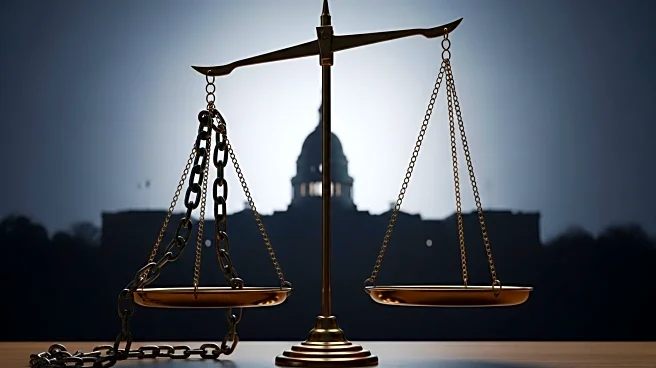What's Happening?
Historian Garrett Graff has raised concerns about the U.S. tipping into authoritarianism, citing recent federal actions in Washington, D.C. These include the deployment of masked federal agents and military units, which Graff argues represent a shift towards authoritarian practices. He highlights the use of federal law enforcement against political opponents and the president's influence over economic decisions as signs of this shift. Graff's analysis suggests that these developments are fundamentally different from past U.S. experiences, such as Watergate.
Why It's Important?
The concerns about authoritarianism have significant implications for U.S. democracy and civil liberties. If unchecked, these actions could erode the constitutional checks and balances designed to prevent abuse of power. The potential impact on public trust in government institutions and the rule of law is profound. Political leaders, civil rights organizations, and citizens may need to address these issues to safeguard democratic principles and prevent further erosion of civil liberties.
What's Next?
The upcoming elections could be influenced by these developments, with potential changes in voter turnout and public sentiment. Political leaders and advocacy groups may intensify efforts to counter perceived authoritarian actions and protect democratic processes. The situation may also lead to increased scrutiny of federal actions and calls for legislative or judicial interventions to restore checks and balances.
Beyond the Headlines
The deeper implications of these concerns include potential shifts in U.S. political culture and governance. The erosion of civil liberties and democratic norms could have long-term effects on societal values and international perceptions of the U.S. as a democratic leader. Ethical considerations about the balance between security and freedom may become more prominent in public discourse.









